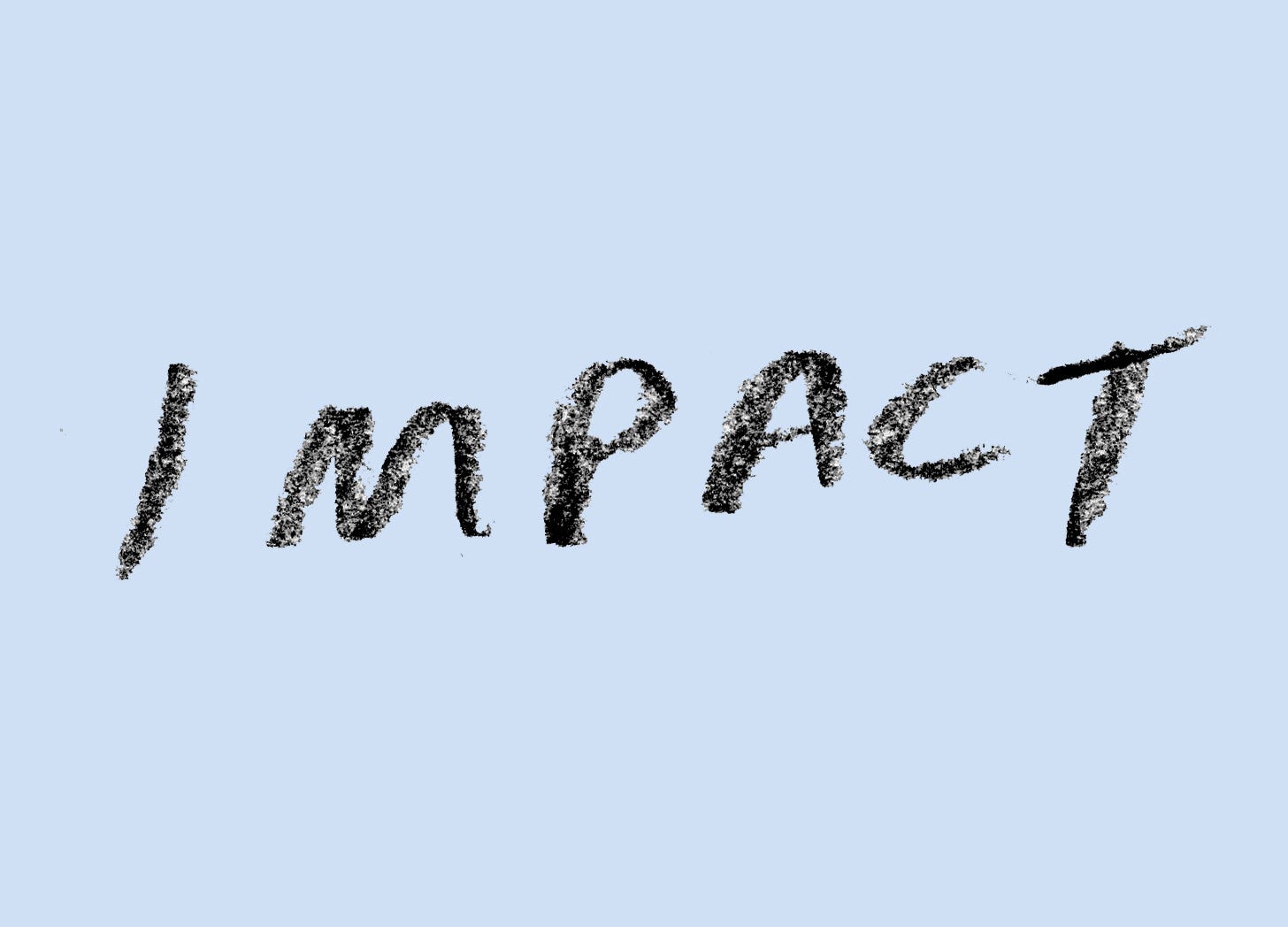the truth about "impact"
most authors want more than impact (and why a few give their ideas away anyway)
People tell me they want to make an impact.
“Why do you want to write a book?” I (always) ask.
“Impact.” First answer, every single time.
“Sure,” I reply, “but if you wanted to spread your idea as far as it’ll go, and that was all you wanted to do, you’d put it online. Post it on social media and ask all your friends to share. Upload it to Kindle Direct Publishing as a free e-book. Do a podcast version. You wouldn’t need an agent like me. You wouldn’t need Penguin Random House or Simon & Schuster. So now, for real, I’m not judging you, and I know you also want to help people: why are you writing this book?”
Then, if they’re being honest with me—and themselves—they tell me the other reasons:
Build professional credibility.
Grow my following.
Boost my business.
Promised myself I would before I die.
Make money. (Ha!)
Become a New York Times bestselling author. (Double ha!)
Etc.
And, almost inevitably, beneath all the other reasons, make Mom happy. Nine times out of ten, Mom plays a role.
Unsurprisingly, no one ever takes the bait. No one ever says, “Hey, this hadn’t occurred to me. Maybe I should put my book online for everyone to read. Today! Then, maybe I should take all the vast effort and money and time I would have invested in developing a book proposal, finding a literary agent, getting a traditional book publishing deal, and then jumping through all the marketing and publicity hoops involved in that laborious process, and invest ALL OF IT in getting people to click a link and read what I have to say. Just put every inch of wood behind that arrow because hey, the message is the thing.”
No one ever says that. But sometimes people do it. Sometimes, people put their (very valid) desires for credibility, authority, and professional success aside and just invest a ton of effort into solving a problem for others that they’ve already solved for themselves.
What does that look like?
Abby Covert, an expert in information architecture, wrote How to Make Sense of Any Mess, a book that “outlines a step-by-step process for making sense of messes made of information (and people).” Then, she made it into a clean and elegant online resource here.
Yes, you can buy the physical book. But you don’t have to. It’s all there on the site, easy to navigate and easy to read. Joyful in its simple abundance.
It’s a cool book. If Abby needed an agent, I’d happily be Abby’s agent. But she doesn’t need an agent. She only wants to help people, and she’s making it as easy for those people to get her help as she possibly can. And sure, I’m sure she enjoys some reputational benefits, but she was OK dispensing with the idea of “Publishing a Book!” in the bucket-list sense to achieve her admirable pro-social goal.
Likewise, there’s Derek Sivers, King of the Givers. Derek wrote me and the rest of his list this morning:
Hi David - For ONE WEEK ONLY (now til October 18) I’m giving away ALL MY BOOKS FOR FREE, here: (my special link). That includes all audiobooks and ebook formats too. Why? Because I want you to read them (or hear them) and gift them. I get emails from people saying my writing has changed the way they see the world, but I know that the $75 price ($15 x 5 books) has kept some people from getting them. Since I don’t care about the money, and I do care about sharing what I’ve learned before I die, I’m happy to lose money this week to get you to read them or hear them. Use the link before it expires. Just a single click once you’re in. No catch.
Coming from someone else, you’d call it a marketing gimmick, but this is pure Derek. It’s a beautiful impulse. I love to see people with a desire to share their ideas so pure they don’t let themselves get in the way.
Of course, there are good reasons to publish a book traditionally, and some of them even have to do with spreading the message farther and wider than you could do on your own. But I’ve written about those reasons here many times. It’s also important to keep in mind the possibility that some ideas deserve to be free.
Sure, most of us will chase the ego rewards, as well we should. But that only helps the pure givers stand out even more.




I appreciate this so much coming from you David. I've secretly thought this for years and wondered if I was missing something.
Loved this knowledge bomb, David! #Bestagent!